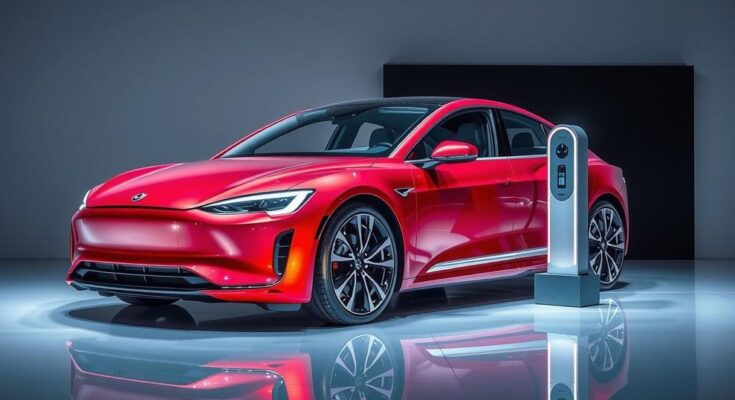Chinese electric vehicles have gained global market prominence due to relentless innovation, robust manufacturing, and fierce domestic competition. While recognized for their achievements in sustainability, backlash from Western media often obscures the broader realities. Cooperation between China and Western nations can accelerate the transition to electric transportation and combat climate change.
The emergence of Chinese electric vehicles (EVs) on the global stage has sparked both admiration and skepticism. Recognized for its substantial investment in sustainable development, China’s leadership in the EV sector is critical in the global fight against climate change. However, criticism from some Western media often simplifies or misrepresents these achievements, attributing them to purportedly unfair practices, an oversimplification that fails to acknowledge the complex realities behind China’s success.
Chinese EVs thrive due to three principal factors: continued innovation, a strong manufacturing ecosystem, and a highly competitive domestic marketplace. Amidst geopolitical tensions and climate concerns that divide nations, the growth of the Chinese EV industry represents a chance for collaborative global efforts aimed at addressing climate change effectively.
Innovation is at the core of China’s EV progress. The nation has poured resources into EV research since the 1990s, paving the way for fruitful partnerships between academic institutions, research organizations, and industry players, facilitating significant advancements in clean energy vehicles. This approach is not exclusive to China; nations such as the United States and Germany have also benefited from similar collaborative strategies that foster technological progress.
Over the past forty years, China has established itself as a manufacturing powerhouse, boasting a comprehensive industrial value chain that promotes swift growth in the EV sector. Its integrated manufacturing capabilities—from the supply of raw materials to the assembly of advanced components—enable the rapid production of high-quality EVs while complying with international standards, affording Chinese manufacturers a competitive edge.
The robust competition within China’s domestic market further fuels innovation and efficiency. Companies must continually enhance their offerings, incorporating advanced features while lowering costs to attract consumers, which ultimately prepares them to enter foreign markets more effectively.
Despite the apparent advantages of Chinese EVs, some Western countries have enacted trade barriers such as tariffs, undermining their market access. Such actions not only elevate consumer prices but also hinder progress toward global green energy goals. This inconsistency is particularly notable in the European Union, where member states advocate for climate action yet impose restrictions that could slow the transition to sustainable transport.
Chinese EV manufacturers can counteract these restrictions by pursuing joint ventures and establishing plants abroad, which would facilitate their integration into local economies while enhancing their competitiveness. A notable historical reference is the strategy employed by Japanese automakers in the 1980s. Additionally, partnerships with American and European firms can foster cooperative research and development initiatives that expedite the transition to EVs in those regions.
Simultaneously, governments from China and the West should collaborate to dismantle trade barriers and enhance the approval processes for both traditional and electric vehicles. A unified international approach to establishing EV standards for charging infrastructure and battery technology could ensure global interoperability and reliability.
In light of the ongoing geopolitical friction and climate challenges, it is imperative that nations engage in cooperative efforts to overcome these obstacles and transition toward a sustainable energy future. China’s advancement in EV technology presents a unique opportunity for Western automakers to collaborate, encouraging innovation, reducing costs, and fostering collective progress toward climate goals.
In recent years, China’s electric vehicle industry has garnered significant attention as it approaches a dominant position in the global market. International entities like the United Nations have acknowledged the country’s initiatives in promoting EVs and renewable energy, considering them crucial in combating climate change. Nonetheless, the narrative is often contested by Western media, which tends to frame China’s growth as the result of unfair practices or non-transparent strategies. Understanding the multifaceted nature of China’s success in the EV sector, fueled by innovation, manufacturing prowess, and market dynamics, is essential for grasping both the challenges and opportunities in the global transition to sustainable transportation.
In summary, the rise of Chinese electric vehicles represents both a challenge and an opportunity for the United States and the European Union. By embracing cooperation, reducing trade barriers, and fostering innovation, these regions can enhance their contributions to the global EV market and collectively tackle climate change. Rather than viewing China’s success with skepticism, it is crucial that Western industries and governments recognize the potential for collaboration that could result in mutual benefits and advancements toward sustainable transportation objectives.
Original Source: www.chinadaily.com.cn




